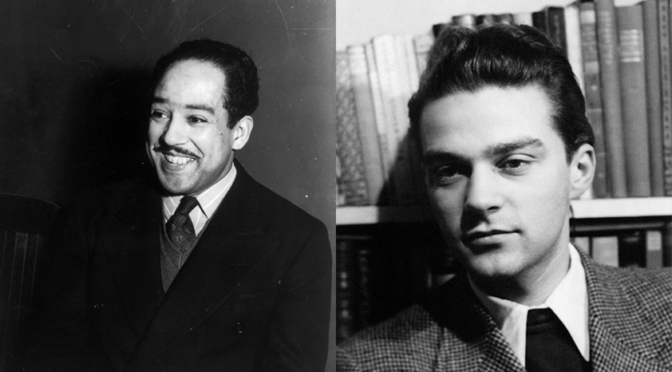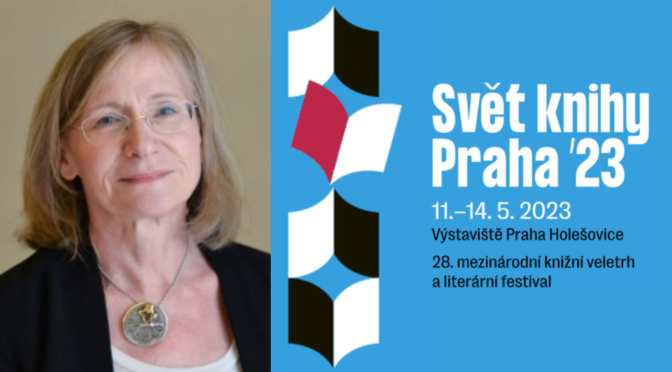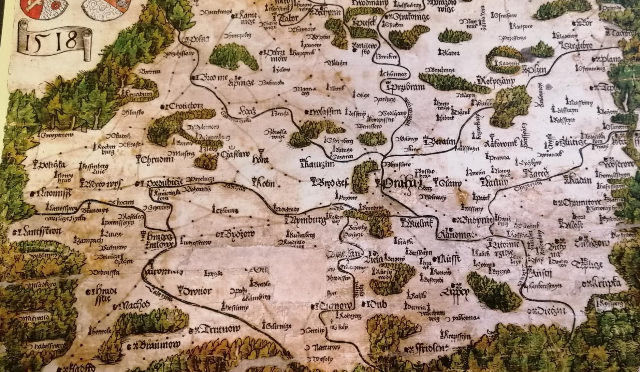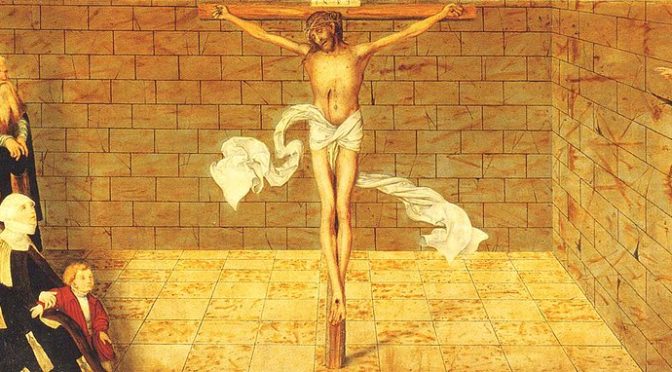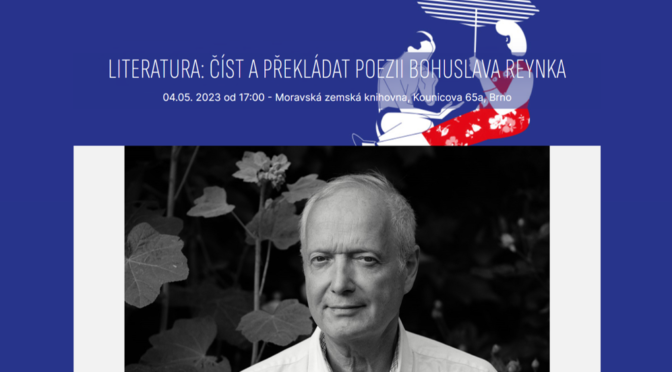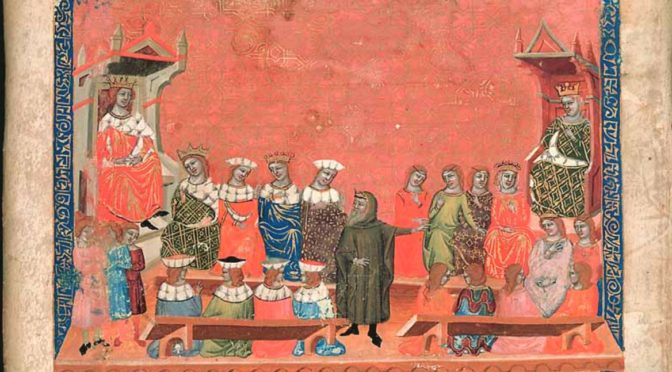What were the intertextual relationships between the African American poet Langston Hughes and the Czech poet Ivan Blatný? How did Blatný employ English in his poetry, how did Hughes use references to Czechoslovakia? How do poets and poems move across languages and power blocs and what were other literary relationships between the Czech lands and the African American cultural community? And what roles does translation play here? These are some of the questions we will be discussing with Julie Hansen, Charles Sabatos, and Justin Quinn. The discussion, co-organized by the Institute of Czech Literature and CEFRES, will take place in English (or rather, it will move between English and Czech) and will be moderated by Františka Schormová. Continue reading Ivan Blatný, Langston Hughes: Translation, Transnationality, and the Blues
Archives
A French Perspective on Czech History. Svět knihy 2023
Presentation of the book: Marie-Elizabeth Ducreux Proměny společnosti ve střední Evropě v 17. a 18. století. Nakl. Karolinum, 2023 organized by the French Institute in Prague, Karolinum Publishing and CEFRES.
With the participation of the auteur, the scientific editors and the translator of the book.
- Marie-Elizabeth Ducreux (EHESS), the author
- Ivana Čornejová (Charles University), scientific editor
- Zdeněk Hojda (Charles University), Scientific editor and moderator
- Adéla Stříbrná (PhD student at Charles University & Université Paris-Nanterre), translator
When: Friday 12 May 2023, 3 pm
Where: Svět knihy, Výstaviště, Prague 7, Hall “Mluvného slova”
Langauge: Czech
Continue reading A French Perspective on Czech History. Svět knihy 2023
“Imagined territory” and community: the construction and uses of the nation in 14th-century Bohemia and Brabant
Second session of the CEFRES 2023 Francophone Interdisciplinary Seminar. The map and the border
In 2023, we would like to start by questionning the very act of bordering and representing (a territory, a period, a trajectory), in short, thanks to the interdisciplinarity of our respective disciplines, to question the map and the border.
Location: CEFRES Library, Na Florenci 3, Prague 1
Dates: Friday, May 12th, 10 am – 11.30 am.
Language: french
Eloïse ADDE (CEU), discussant Jan ZDICHYNEC (Charles University)
Territory is one of the fundamental markers defining a nation; it is even an essential support of it, alongside the State and the population to which it is attached. Often corresponding to natural phenomena that can be identified spatially, such as mountain ridges or river lines, the territory is generally taken for granted and is therefore rarely questioned. Nevertheless, like the nation it materialises, it is a construction, a production that is fluid and changing depending on the uses that are made of it, and its display is much more contingent than it seems. Territory is closely linked to political practice; it is what unifies a “political community”, but the latter also gives it its shape. In this communication, Eloïse Adde will decipher the function of territory and the way it was perceived and constructed within two projects aimed at founding and consolidating the nation in Bohemia and Brabant in the early 14th century.
See the complete program of the seminar here.
The rhetoric of Good Friday sermons in 14th-century Bohemia
The rhetoric of Good Friday sermons in 14th-century Bohemia: Defining norms, commonplaces, and discrepancies
8th session of CEFRES in-house seminar 2022-2023.
Through the presentation of works in progress, CEFRES’s Seminar aims at raising and discussing issues about methods, approaches or concepts, in a multidisciplinary spirit, allowing everyone to confront her or his own perspectives with the research presented.
Location: CEFRES Library and online
Date: Tuesday 9th of May 2023, 16:30
Language: English
Contact: cefres[@]cefres.cz
Olga Kalashnikova (PhD candidate at CEU / associated with CEFRES)
Discussant: Eloïse Adde (CEU)
Abstract
Holy Week – and Good Friday in particular – represents a crucial period of the Lenten season, as it marks the peak of Christian devotion. During Holy Week, charismatic preachers of the Middle Ages sought to profoundly influence the daily life and religious behavior of the people. Bohemian preachers retold the story of Christ’s Passion to evoke an emotional response from listeners (and sometimes readers) and invite them to repent and confess their sins. In some instances, preachers experimented with available sources and theological and rhetorical approaches to the topic to reflect on the growing devotion to the Passion and sacraments in the region and even criticise moral decay of the Bohemian laity and clergy.
My presentation will focus on intellectual background and shared discourse on Christ’s Passion that surrounded fourteenth-century Bohemian preachers while composing their Good Friday sermons at desk. In addition, I will discuss the rationale, structure, methodology, and goals of my PhD project, which ultimately aims to critically examine Good Friday preaching in Bohemia in 1330-1380, identify the peculiarities (transgressions) – of the Bohemian corpus in the broader European context, and classify some theological, hermeneutical, pastoral, and rhetorical “commonplaces” (norms) typical for the genre.
See the complete program of the seminar here.
Reading and translating Bohuslav Reynek’s poetry
Prof. Xavier Galmiche, eminent French Bohemist and winner of the Premia Bohemica Prize (2020), introduces Bohuslav Reynek’s poetry in French translations and his interpretation of his œuvre. The event takes place on the occasion of the 100th anniversary of the meeting of Bohuslav Reynek and Suzanne Renaud.
When: Thursday May 4th 2023 at 17:00
Where: Moravian regional library, Kounicova 65a, Brno
Language: Czech Continue reading Reading and translating Bohuslav Reynek’s poetry
Community, Identity, Individuals: Shaping the (Political) Nation in Premodern Europe
According to the dominant understanding, the nation is a product of modernity (the Industrial Revolution, capitalism, linguistic unification, printing press generalization and the democratization of schooling, etc.). However, nations did not appear ex nihilo in the 18th century. Traditional attempts to explain this emergence do not satisfy scholars, as they focus only on the moment when the nation became the hegemonic mode of political organization during the 19th century. In doing so, they fail to describe the long process that led to this hegemony. This conference will reassess the definition and genealogy of the nation.
Date: May 3rd, 4th and 5th 2023
Location: Central European University (CEU) Campus (Vienna) & online : https://bit.ly/3TRxGjT
Organizer: Medieval Studies Department of the Central European University
Funding/co-organizers: ACRO (CEU), IMAFO (Austrian Academy of Sciences), FPPCHA (Lausanne), CRHiDI (Université Saint-Louis – Bruxelles), CEFRES (Prague) and Stadt Wien Kultur.
Language: English

